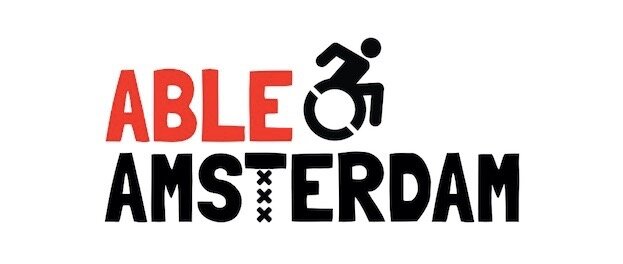Research
Presenting my research at the UD2024 conference in Oslo, Norway
My Able Amsterdam name tag at UD2024
As part of my MSc in Social Policy & Public Health (2022) I wrote a research thesis titled: “You’re in a different world if you have a disability”: Exploring wheelchair users’ lived experience of public transportation in Amsterdam, The Netherlands.
My research included — amongst other qualitative methods — 12 in-depth interviews with manual and electric wheelchair users living in Amsterdam.
Abstract
Public transportation has been recognised as a crucial means to participate in society. Research indicates, however, that wheelchair users across the globe still face a range of physical and social barriers to public transportation use. While The Netherlands ratified the United Nations Convention on the Rights of Persons with Disabilities in 2016 — which includes an emphasis on accessible transportation — sources highlight that Amsterdam’s public transportation still does not meet the needs of its wheelchair users.
With this in mind, this thesis explores how wheelchair users experience public transportation in the Dutch capital. This thesis addresses the following question: How do wheelchair users experience public transportation in Amsterdam?
To provide a framework to understand these experiences, a phenomenological approach was adopted. As Bruno Latour’s Actor-Network Theory emphasises that different actants interact to shape an experience, Latour’s approach further guided the analysis. The methodology included 11 semi-structured interviews with 12 manual and electric wheelchair users living in Amsterdam. Interviews were supplemented by participant observation trips, a Gemeente Vervoerbedrijf (GVB) accessibility workshop, and relevant photos.
Findings suggest that wheelchair users’ lived experience of public transportation in Amsterdam is shaped by the built environment (platforms, lifts, and accessibility signage), staff and passengers (provision of help, staff knowledge, and a lack of passenger awareness), and policies (the wheelchair assistance policy, the wheelchair priority policy, and prohibited escalator use).
This research thus concludes that wheelchair users' experiences of public transportation in Amsterdam are based on the interaction of different actants in relation to the built environment, staff and passengers, and policies. While public transportation can be experienced positively, a combination of elements frequently conspires to create major challenges for wheelchair users. Amsterdam’s policymakers and public transportation authorities, with the input of wheelchair users themselves, must therefore work together to achieve an accessible public transportation experience for everyone.
Want to learn more?
I invite anyone interested to read my thesis by clicking the button below.
